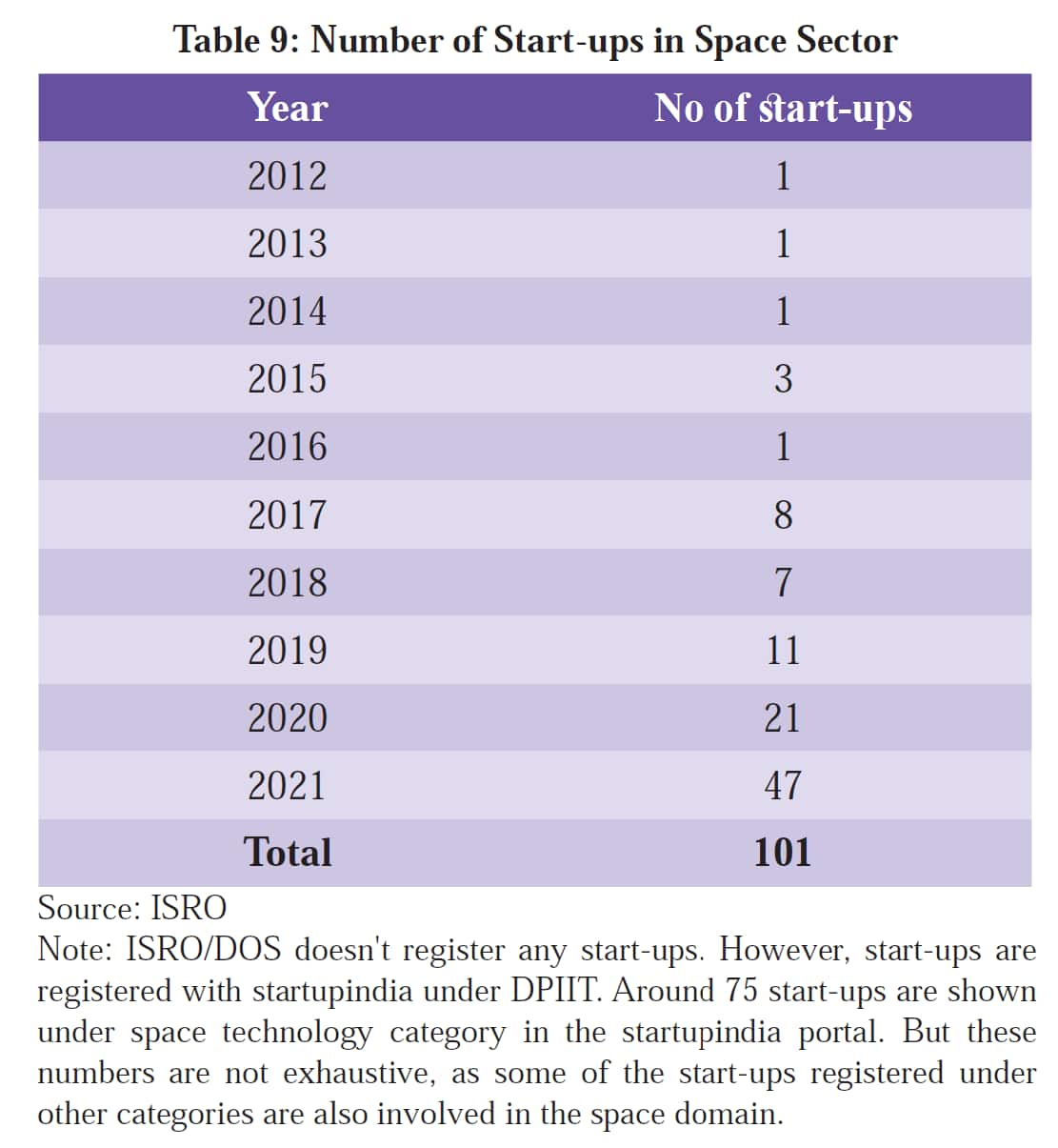



The number of startups working in the space sector has increased to 47 in 2021, from 11 startups in 2019, said the Economic Survey 2021-22 on January 31.
In June 2020, the government opened up the space sector enabling the participation of private firms in the entire gamut of space activities.
As part of these reforms, New Space India Limited, which is India's first space public sector undertaking (PSU), was empowered to “own” the operational launch vehicles and space assets of Indian Space Research Organisation (ISRO).
Instead of an earlier supply-based mandate, NSIL now operates on a demand-driven mandate wherein it acts as aggregator of user requirements and obtain commitments. NSIL is now responsible to build, launch, own and operate the satellite and provide services to its customers.
Among the first deals under the model was with direct-to-home service provider Tata Sky (now Tata Play) which will be utilising the capacity on board the upcoming communication satellite GSAT-24, to be built by ISRO and launched by French satellite launch firm Arianespace.

The government also established the Indian National Space Promotion and Authorisation Centre (IN-SPACe) for promoting industries and attracting investment in the space sector. It has been tasked with prioritising the launch manifest as per the requirements of NSIL, ISRO and NGPEs as well as allowing the utilization of capital intensive Department of Space-owned facilities by the private sector at reasonable cost.
In a little over a year, the interim IN-SPACe board has received close to 40 proposals from large industries, MSMEs, startups and academia covering broad range of activities in space domain - across both upstream (launch vehicle/satellite manufacturing) as well as downstream (Earth Observation applications and communications among others), the survey said.
Six things to know about S Somanath, ISRO's new chairperson
It also noted that five private satellites have been tested at ISRO facilities, and four student satellites were launched aboard the PSLV C-51. A total of six MoUs have also been signed with private/academic entities for sharing technical expertise and facilities.
The government has also implemented the national registration mechanism for space objects, with five satellites registered so far.
The survey said that the traditional Satellite Communication and Remote Sensing sectors have been further liberalised, enabling entrepreneurs and industries to take up end-to-end activities in these domains.
ISRO prevents Chandrayaan-2 collision with NASA's Lunar Orbiter
"With these recently undertaken policy initiatives and private sector participation, the Indian space sector is expected to capture a larger share of the global space economy, which was close to $447 billion in 2020" it added.
India currently accounts for only about 2 percent of the space economy, much behind the major players – the United States and China.

Discover the latest Business News, Sensex, and Nifty updates. Obtain Personal Finance insights, tax queries, and expert opinions on Moneycontrol or download the Moneycontrol App to stay updated!